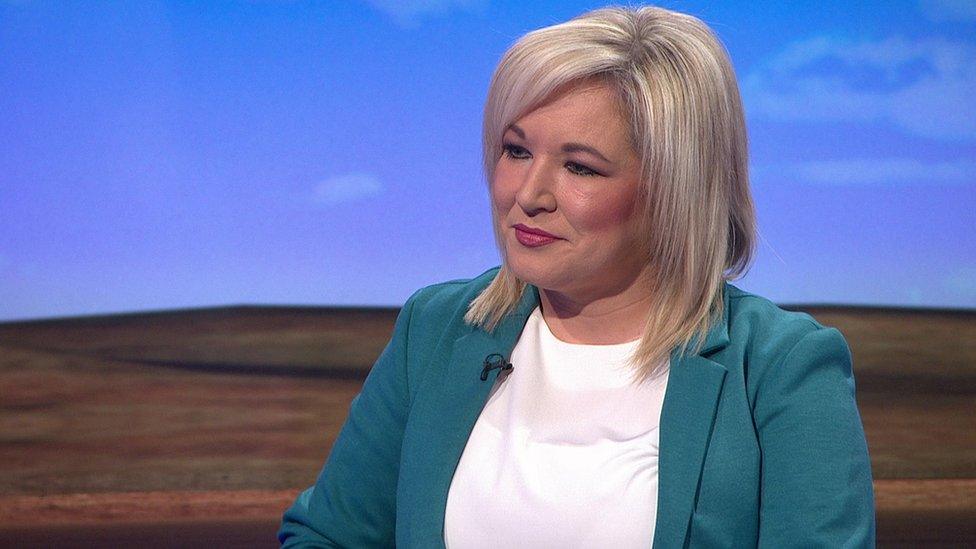Tuition fees rise not right, says Michelle O'Neill
- Published

Raising tuition fees is "not the way to go", says Michelle O'Neill
Michelle O'Neill has rejected Arlene Foster's suggestion that increasing university tuition fees in Northern Ireland could be an option for raising funds for the new Stormont executive.
Last week Mrs Foster, the first minister, said higher fees for students should be debated in a "positive way".
Sinn F├®in's Mrs O'Neill said increasing the fees was "not the right approach".
It comes after the Northern Ireland secretary suggested the executive should find new ways to raise revenue.
Julian Smith said he was disappointed the parties in the executive had ruled out introducing water charges.
Stormont is set to get an extra £1bn as part of the deal to restore power sharing after a three-year impasse but Finance Minister Conor Murphy said that sum was not enough.
University fees in Northern Ireland can be up to £4,275 a year
Mrs Foster told ┤¾¤¾┤½├¢ News NI last week that the executive needed to "have a look" at how universities were funded.
"We can look at other issues as well - it doesn't mean we decide one way or the other," added the Democratic Unionist Party (DUP) leader.
"Government costs money and when people say: 'I want to have all these things dealt with,' we have to say: 'Where are our priorities?'"
'Break down barriers to education'
Ms O'Neill, the deputy first minister, told the ┤¾¤¾┤½├¢'s Sunday Politics Northern Ireland programme the debate about tuition fees was an "age old argument".
"Every time we talk about finances we revert to water charges and tuition fees," she said.
"We shouldn't be trying to build up barriers to access education - we should be trying to break them down."
The Sinn F├®in vice-president said there were "financial challenges" for the executive but suggestions of raising tuition fees was not helpful.
University fees in Northern Ireland can be up to £4,275 a year, while in England they can be up to £9,250.
- Published17 January 2020
- Published17 December 2019
- Published8 June 2019